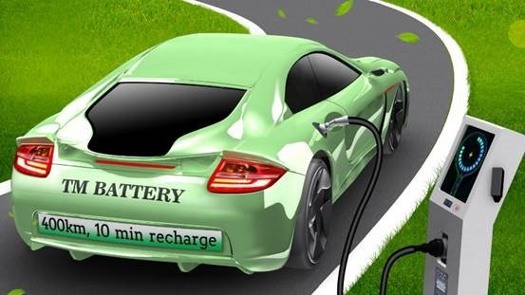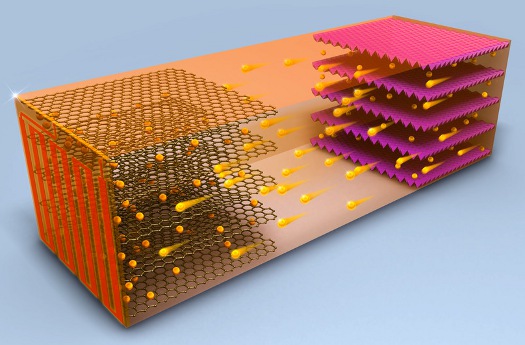 |
| March 16, 2021 | Volume 17 Issue 11 |
Designfax weekly eMagazine
Archives
Partners
Manufacturing Center
Product Spotlight
Modern Applications News
Metalworking Ideas For
Today's Job Shops
Tooling and Production
Strategies for large
metalworking plants
New inexpensive battery has 10-min. charge for EVs
By A'ndrea Elyse Messer, Penn State
Range anxiety, the fear of running out of power before being able to recharge an electric vehicle, may be a thing of the past, according to a team of Penn State engineers who are looking at lithium iron phosphate batteries that have a range of 250+ miles with the ability to charge in 10 minutes.
"We developed a pretty clever battery for mass-market electric vehicles with cost parity with combustion engine vehicles," said Chao-Yang Wang, William E. Diefenderfer Chair of mechanical engineering, professor of chemical engineering and professor of materials science and engineering, and director of the Electrochemical Engine Center at Penn State. "There is no more range anxiety, and this battery is affordable."

Developed by a team of Penn State engineers, a new thermally modulated battery for mass-market electric vehicles can reduce range anxiety while providing unsurpassed safety at a low cost. It also contains no cobalt. [Credit: Chao-Yang Wang's lab, Penn State]
The researchers also say that the battery should be good for 2 million miles in its lifetime.
They reported Jan. 18 in Nature Energy that the key to long life and rapid recharging is the battery's ability to quickly heat up to 140 degrees Fahrenheit (F) for charge and discharge, and then cool down when the battery is not working.
"The very fast charge allows us to downsize the battery without incurring range anxiety," said Wang.
The battery uses a self-heating approach previously developed in Wang's center. The self-heating battery uses a thin nickel foil with one end attached to the negative terminal and the other extending outside the cell to create a third terminal. Once electrons flow, it rapidly heats up the nickel foil through resistance heating and warms the inside of the battery. Once the battery's internal temperature is 140 F, the switch opens and the battery is ready for rapid charge or discharge.
Wang's team modeled this battery using existing technologies and innovative approaches. They suggest that by using this self-heating method, they can use low-cost materials for the battery's cathode and anode and a safe, low-voltage electrolyte. The cathode is thermally stable lithium iron phosphate, which does not contain any of the expensive and critical materials like cobalt. The anode is made of very large particle graphite, a safe, light, and inexpensive material.

In a battery, ions flows from the cathode to the anode, resulting in a positive energy charge for the unit. [Credit: Chao-Yang Wang Lab, Penn State]
Because of the self-heating, the researchers said they do not have to worry about uneven deposition of lithium on the anode, which can cause lithium spikes that are dangerous.
"This battery has reduced weight, volume, and cost," said Wang. "I am very happy that we finally found a battery that will benefit the mainstream consumer mass market."
According to Wang, these smaller batteries can produce a large amount of power upon heating -- 40 kWh and 300 kW of power. An electric vehicle with this battery could go from 0 to 60 mph in 3 sec and would drive like a Porsche, he said.
"This is how we are going to change the environment and not contribute to just the luxury cars," said Wang. "Let everyone afford electric vehicles."
The U.S. Department of Energy supported this work.
Published March 2021
Rate this article
View our terms of use and privacy policy
